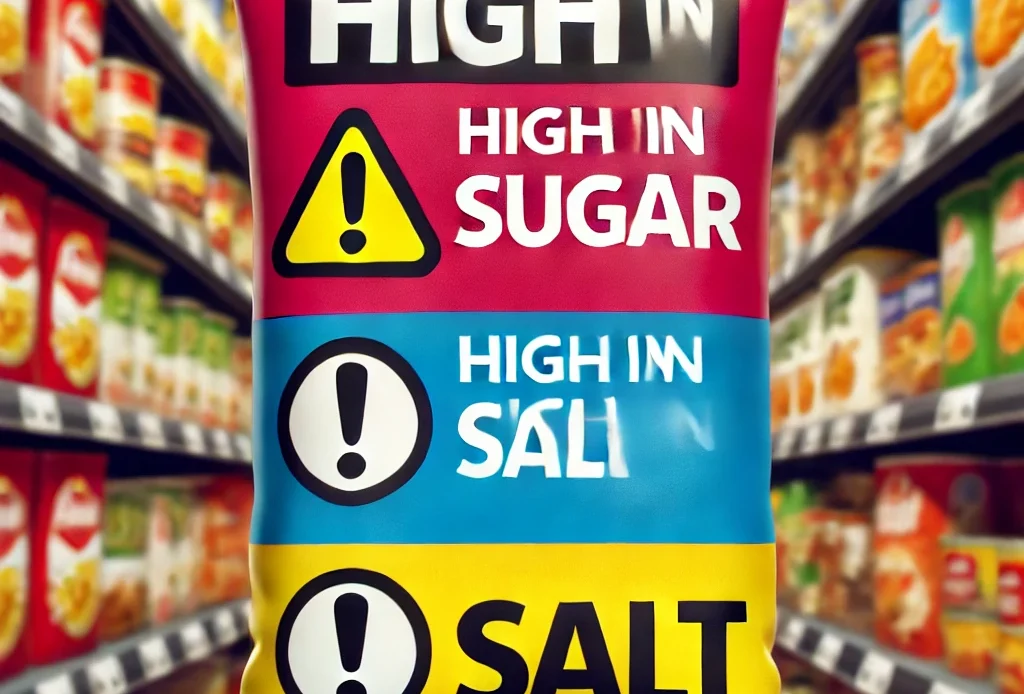In a significant move towards promoting public health, the World Health Organization (WHO) is urging governments worldwide to adopt mandatory front-of-package labels (FOPL) on food products. These labels would clearly display the health implications of consuming certain foods, helping consumers make better-informed choices. As global obesity rates rise and diet-related diseases like diabetes and heart disease become more prevalent, the importance of transparency in food labeling is more crucial than ever.
Why Front-of-Package Labels?
Front-of-package nutrition labeling (FOPNL) places critical health information directly on the front of food packaging, allowing consumers to make quick and informed decisions about their purchases. Research has shown that FOPL is more effective than traditional back-of-package labeling, as it brings health information to the forefront. For instance, many consumers may not understand or even read detailed nutritional labels. However, front labels that use symbols or icons, such as warning labels for high sugar or fat content, make it easier to identify unhealthy options at a glance.
Countries like Chile, Mexico, and Brazil have already implemented FOPL, and results show positive trends. After Chile introduced high-in warning labels, consumption of sugary beverages dropped significantly, while food manufacturers began reformulating products to reduce unhealthy ingredients like sugar, salt, and saturated fat. WHO hopes that a global rollout of FOPL can yield similar results, making it easier for consumers to choose healthier options and pressuring manufacturers to improve the quality of their products.
The Health Impact of Clear Labeling
Several studies support WHO’s push for FOPL. Research has demonstrated that FOPNL can lead to healthier consumer behavior and encourage manufacturers to reformulate their products to meet nutritional standards. For example, a review in the Journal of Public Health Nutrition revealed that warning labels on sugary beverages and processed foods resulted in decreased sales of unhealthy products. Similarly, calorie information, prominently displayed on the front, has been shown to reduce caloric intake in consumers, helping to combat obesity.
The initiative is part of WHO’s broader strategy to combat non-communicable diseases (NCDs), which are responsible for 71% of all deaths globally. NCDs such as cardiovascular disease, diabetes, and certain cancers are closely linked to poor dietary habits. By implementing front-of-package labels, WHO hopes to provide an effective policy tool to reduce the intake of unhealthy foods and promote better dietary choices.
What Lies Ahead for Global Food Policy?
The adoption of front-of-package labels has the potential to reshape the food industry. However, its success will depend on national governments enforcing these guidelines and adopting mandatory regulations. Currently, only 16 countries have implemented FOPL systems, with many more expected to follow as awareness grows about its public health benefits. The U.S. Food and Drug Administration (FDA) is also considering FOPNL regulations and is expected to draft new guidelines by the end of 2024.
Although some industry groups have resisted mandatory FOPL, arguing that it could be overly simplistic or unfair to certain products, the evidence is clear: consumers want transparency. A 2023 survey revealed that 75% of U.S. consumers support mandatory front-of-package labeling, underscoring the growing demand for healthier food options.
As WHO continues to push for the global adoption of front-of-package labels, we may be on the verge of a major shift in how food is marketed, sold, and consumed. These labels could be a game-changer, making it easier for people to make healthier choices every day and encouraging the food industry to prioritize health over profits.
Source: This article is based on information from the WHO, Economic Times, and the Center for Science in the Public Interest (CSPI).
Key Highlights:
- WHO urges global adoption of mandatory front-of-package labels (FOPL) to promote healthier eating.
- Countries like Chile have seen reductions in unhealthy food consumption after introducing FOPL.
- FOPL is part of WHO’s broader strategy to combat non-communicable diseases like heart disease and diabetes.
- U.S. FDA is expected to release new FOPL regulations by the end of 2024, following a public consultation.




